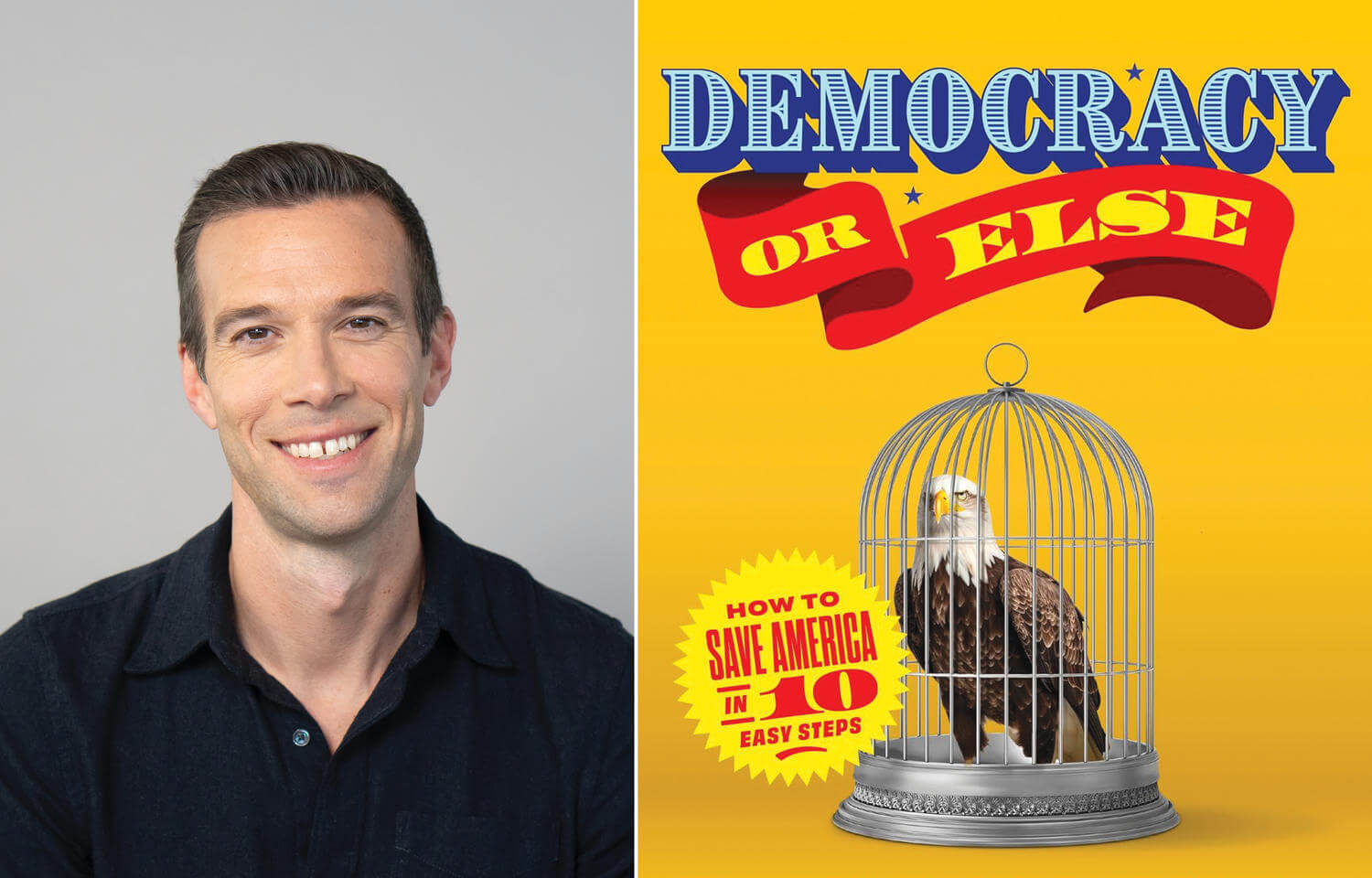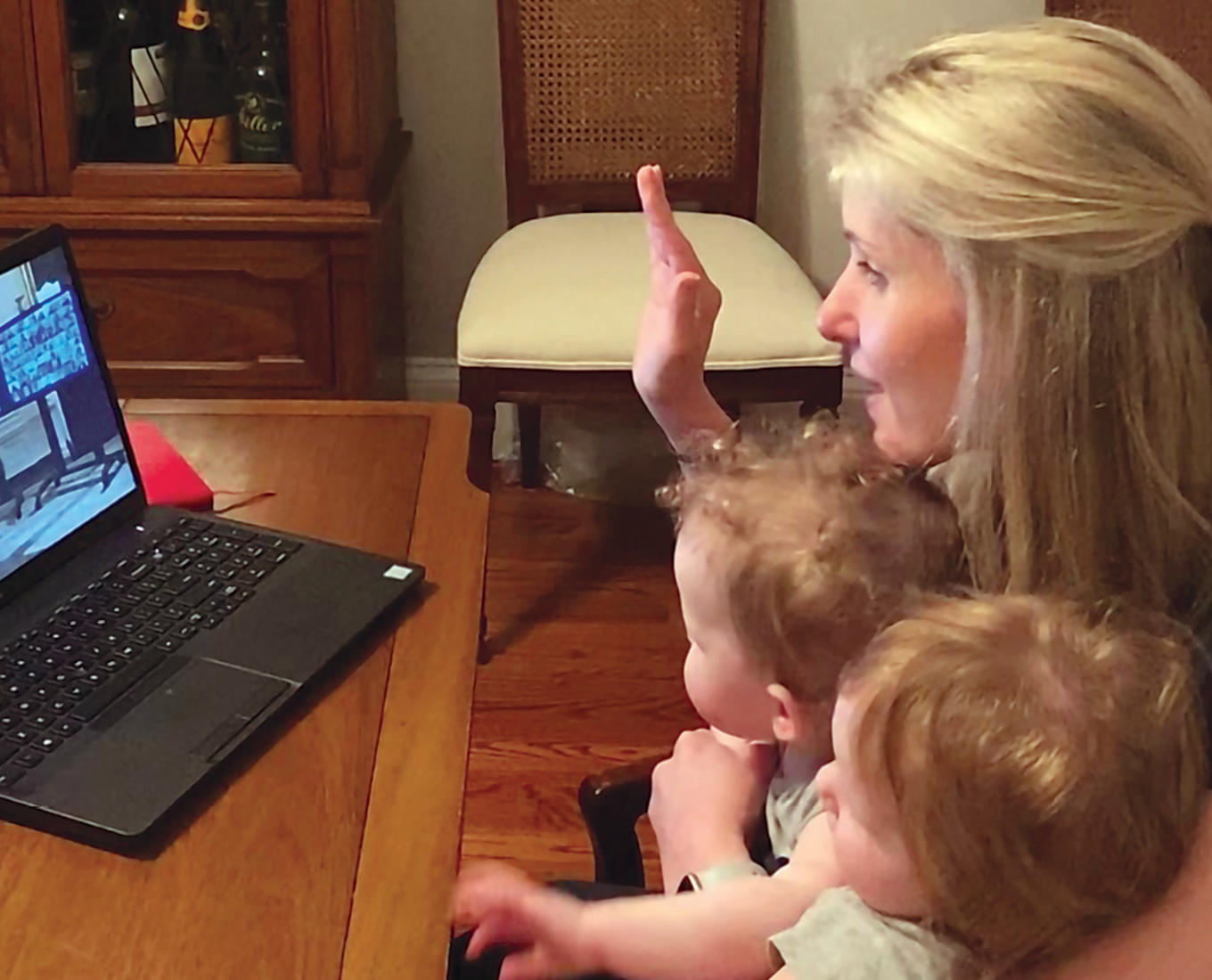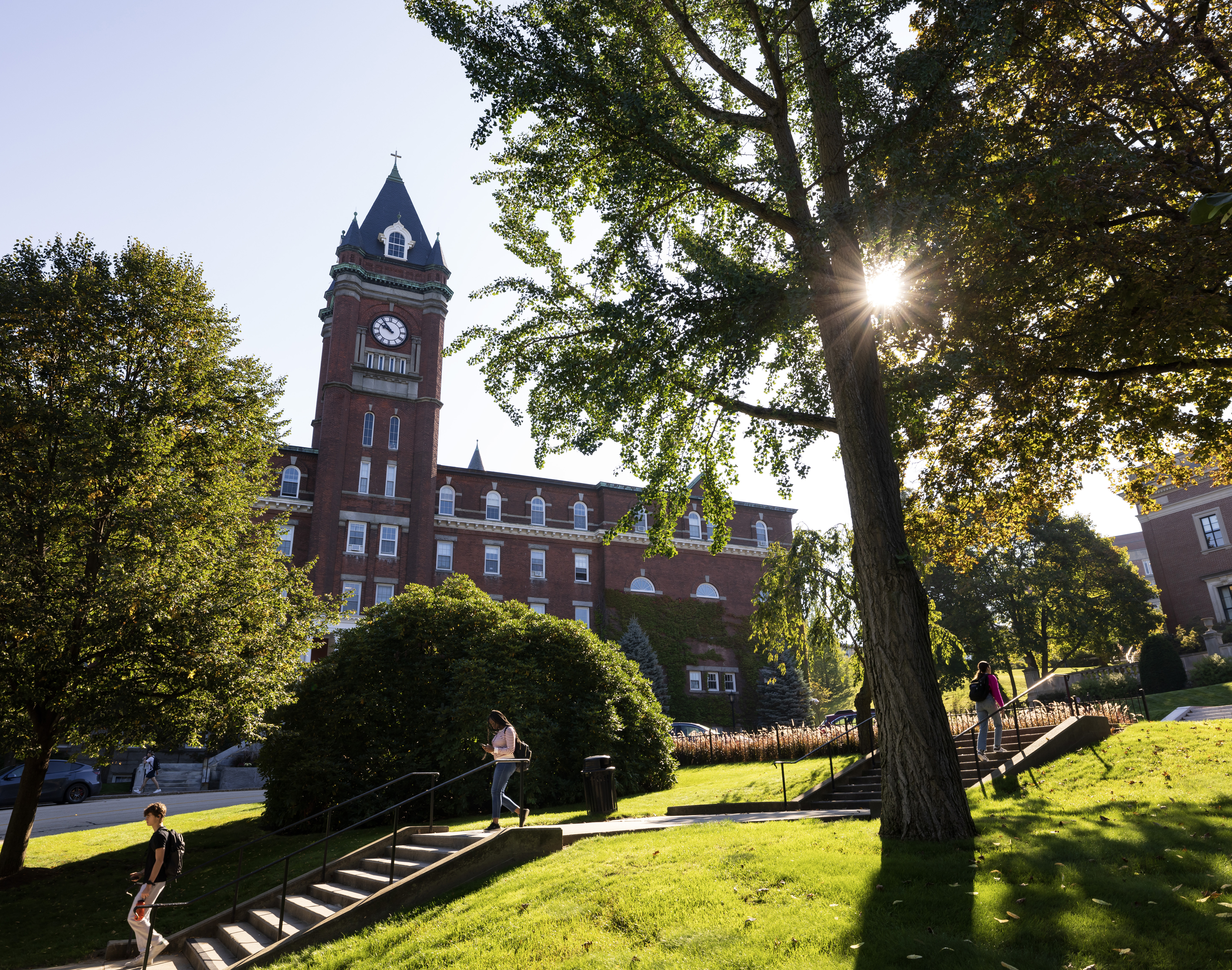What movie or TV show do you wish you could watch again for the first time?
“Succession.”
What is one item you must have on you at all times?
My phone is truly another appendage.
During your time at The White House, did you get to do any walk-and-talks like viewers saw on “The West Wing”?
No, though there were lots of sit-and-talks in windowless basement offices.
What is your go-to coffee order?
Woof, get ready: large iced French vanilla Dunkin’ Donuts with milk and Splenda. I know, it’s bad.
Call or text?
Text! Haven’t answered a call in years.
ON PRESIDENTIAL SPEECHWRITING
What moment would you most like to relive from your time working as speechwriter for former President Obama?
The night of the 2008 election.
What was the most surprising part about speechwriting for Obama?
How patient and collaborative he was — never lost his temper, never dismissed my suggestions out of hand, always willing to take suggestions, even as he was most always confident about what he wanted to say.
You’ve said you knew a speech was good when it came back covered in edits. What kinds of edits would the president make?
He would frequently add entire arguments I’d left out, sometimes adding a full page to the speech. As the speech got closer to the final draft, he’d change a lot of individual words and edit sentences for rhythm and flow as much as anything else.
What is the best writing tip he gave you?
Always think about the story you’re trying to tell.
What part of working at Obama’s White House do you miss the most?
The camaraderie with other colleagues, who in some cases had been friends for years.
Favorite speech you wrote during that time?
The second inaugural address.
You have said the most important thing Obama taught you was to believe, no matter what, in the possibilities of American democracy. What is the promise of democracy, and why is it worth saving?
Not sure if I’m supposed to give you guys an exclusive excerpt from the book, but here goes:
“The work of democracy is never over. And that’s a feature, not a bug. For centuries, there was nothing in the world like this. People organized themselves through power and violence. And then one day, people decided to take a chance on each other – on a government by the many, not the few, organized by laws, not kings.
Turns out, that’s a tough thing to pull off. At best, democracy is messy, contentious, and infuriating. Change will be slow because convincing a big group of people to do anything is slow. Have you ever watched a table for 12 try to order at a restaurant? It’s a nightmare.
But here’s the amazing part. Democracy isn’t just how we organize our government. It’s a way to see ourselves. In deciding that we are in charge – that we have agency – we are also deciding that each of us matters and deserves a voice, that all of us are worthy of dignity and respect. In empowering us, democracy changes us.”
Favreau (second from left) at a “Pod Save America” live show in Boston with Crooked Media co-founders Lovett (at left) and Vietor (at right) and U.S. Sen. Ed Markey (D-Mass).
ON WRITING, IN GENERAL
You’ve said speeches should tell a story. What makes a compelling story?
A story that makes you feel empathy and inspires you to think or act differently as a result.
What are your top three favorite speeches of all time?
MLK’s “I Have A Dream” speech, LBJ’s “We Shall Overcome” speech and RFK’s “Mindless Menace of Violence” speech. I think all three of them together tell an essential story about America — an imperfect union that can still be made better.
What word would you like to do away with?
Literally.
When is your preferred time to write?
Late at night (though I can rarely stay up past 10 p.m. most nights) or on a flight with no Wi-Fi (that isn’t turbulent).
Favorite line you’ve ever written?
“In the unlikely story that is America, there’s never been anything false about hope.”
Ideal speech font, font size?
Times New Roman, 12pt.
ON “DEMOCRACY OR ELSE: HOW TO SAVE AMERICA IN 10 EASY STEPS”
Your new book, “Democracy or Else: How to Save America in 10 Easy Steps,” with Crooked Media’s co-founders and hosts of “Pod Save America” comes out in June. Who should read it?
Anyone who wants to get more involved in politics and organizing on any issue at every level. Whether you’re a political junkie or someone who barely votes, I think you’ll find some useful advice about how to participate in politics in a way that feels less scary, more fun and hopefully more impactful.
If it won’t spoil anything, can you share your favorite step of the “10 Easy Steps”?
Step 7: Give Yourself A Break (really!).
What is the greatest threat to American democracy today?
Same as it ever was: selfishness and cynicism; ignorance and indifference.
ON CROOKED MEDIA AND “POD SAVE AMERICA”
What is the best part of co-hosting “Pod Save America”?
I get to talk about something I really care about with people I really care about.
What is the most challenging part of co-hosting “Pod Save America”?
Have you seen the news lately?
Dream podcast guest?
Taylor Swift.
Where do you get your news?
Almost anywhere you could think of.
How do you recommend Americans today consume news?
I wouldn’t (kidding!). Read fact-checked, well-sourced journalism. Read the whole piece, not just the headline or the tweet or whatever 30-second clip you see on social media. If something seems surprising or enraging or too wild to be true, look for another source. Consume more news and less opinion. And do it all in moderation (advice to myself that I can’t seem to take).
ON ALMA MATER
What made you choose Holy Cross?
My first visit to campus — it just felt like the right place. Also, to be completely honest: My best friend from high school was going, and I got an academic scholarship.
How do you think you are different because of your education from Holy Cross?
What I value most about my Holy Cross education is that our professors exposed us to different points of view, taught us how to debate and disagree with empathy, and made sure we knew that the purpose of education isn’t just to improve our own lives, but to improve the lives of others.
What experience from the Washington Semester Program sticks out in your memory?
The first time I got to write a draft of an op-ed for Sen. John Kerry as a press intern. It’s when I knew I wanted to be a speechwriter.
What was the most impactful course you took at Holy Cross and who taught it?
Sociology 101 – The Sociological Perspective, with Professor Mary Erdmans.
You served as the opinion editor of The Crusader (now The Spire) student newspaper. What advice would you give the staff today?
Write your opinion pieces with the goal of persuading someone who you know will disagree with your take. The point is not to make yourself feel good about how right you are — it’s to get other people to see things your way.
What is your favorite Holy Cross tradition?
Spring Weekend — is that still fun?
What is your favorite spot on campus?
Kimball — I could’ve sat at brunch on the weekends and avoided walking up that hill forever.
Favorite Worcester spots?
I honestly don’t think any of them exist anymore — Yong Shing, Cactus Pete’s, Plantation Club, Road Runner Pizza, a BYOB Mexican place that I’m blanking on (Tortilla Sam’s).
AND, FINALLY
Who or what inspires you?
I absolutely would’ve cringed and rolled my eyes at this four years ago, but: our two sons, Charlie and Teddy. Parenting is incredibly exhausting and humbling, but also the most fulfilling challenge I’ve ever had, because when you’re trying to raise good humans, you’re constantly inspired to be a better human yourself.
What is the best piece of advice you have ever received?
From David Axelrod: There are two kinds of people — people who want to be something and people who want to do something. Strive to become the second kind of person



